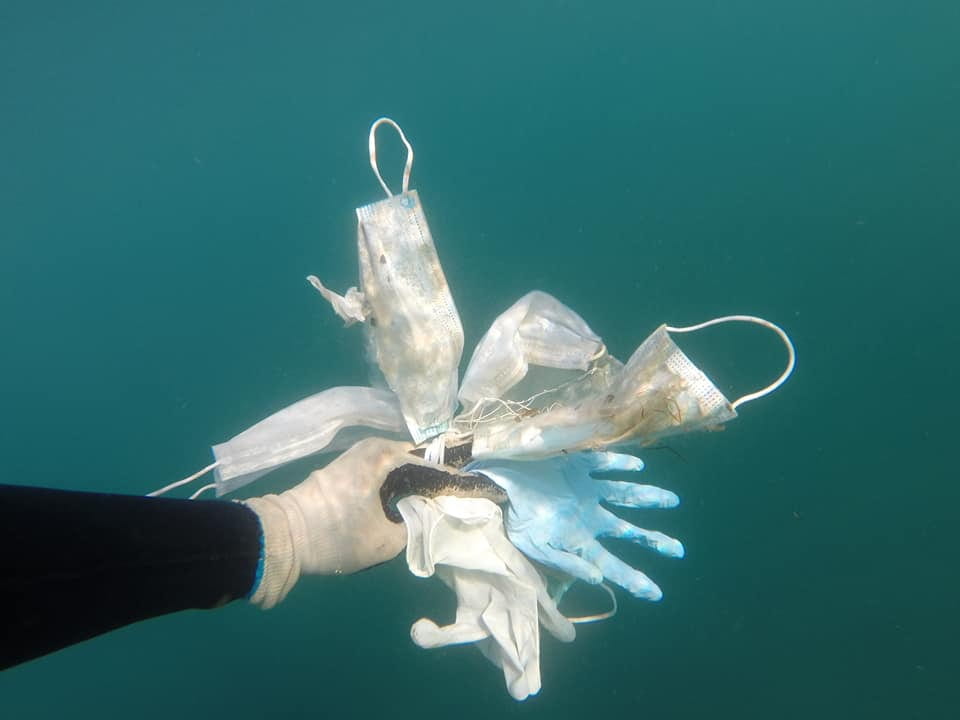
I can’t be the only person to have noticed discarded disposable (or not) masks littering our streets and outside spaces over the last few months. This has become an increasing worry, so even though I knew I would be horrified by what I found; I decided the time had to come to delve into the real cost of PPE to our planet.
We were beginning to see things move in the right direction, and people were becoming more conscious of the amount of packaging they were using in their daily lives. Hugh Fearnley-Whittingstall made his War on Plastics BBC programs, bringing the issue into our living rooms in a prime–time tv slot. Schools had started to spend more time educating children (and their parents) about why we must all use less plastic and packaging, regularly discussing the issue and running projects to show what they can do to help protect our planet and reduce our waste. Then Covid 19 hit us and all our efforts appear to have been lost, and now the planet has been subjected to another form of pollution – Corona Virus waste.
According to the World Economic Forum, between February and April this year over 1 billion items of personal protective equipment alone where given out in the UK. That’s millions of pairs of single use gloves, masks and aprons all made from plastic and thrown away every day.
Even before Covid 19 arrived, there was already 8 million tonnes of plastic ending up in our oceans every year. Now a UK study has predicted that if everyone used one disposable mask a day it would create an additional 66,000 tonnes of masks and 57,000 tonnes of plastic packaging to this ever-growing problem. Too much discarded plastic is being found on the streets and in our fields and hedgerows, and especially in our oceans.
Of course, the world’s politicians are aware of the environmental catastrophe on their doorsteps, but are they really acting fast enough before the damage caused is irreversible?
Zac Goldsmith is a minister in the Department for the Environment, Food and Rural Affairs in the UK. “Maritime nations know far better than anyone how our ocean economies are dependent on ocean health” he said at a recent World Economic forum webinar discussing ‘ensuring a green recovery’. “But we all ultimately depend on our shared oceans and changing the role that plastic plays in every part of our economy. Efforts to tackle plastic pollution can help us improve ocean health, tackle climate change, support biodiversity and build sustainable livelihoods”.
Since March there may well have been a temporary reduction in carbon emissions resulting from us staying at home more during the first lock down, but this also created an increase in the amount of packaging we accumulated from home grocery deliveries. Some recycling programs have been stopped completely and the amount of medical waste produced has rocketed.
We all need to act now and adjust our own behaviour, if we do this collectively, we might just be able to make a difference before we destroy the planet as we know it.
